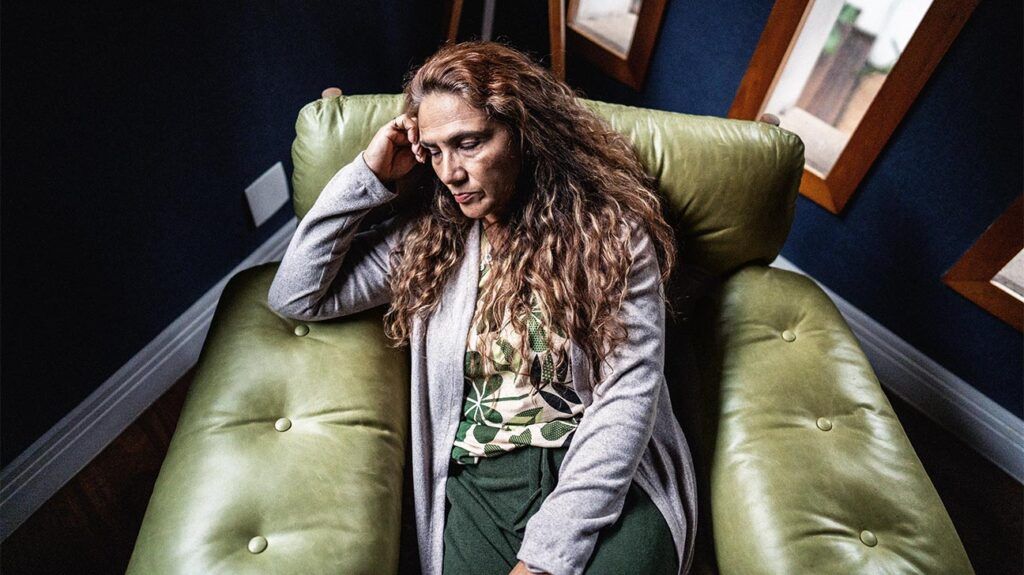If people decide to stop taking hormone replacement therapy (HRT), they should reduce the dosage gradually. Stopping abruptly may cause a return of menopause symptoms, such as hot flashes and disrupted sleep.
People may wish to stop taking HRT if they have been taking it for a long time, if their menopause symptoms are reducing as they get older, or for other health reasons.
This article looks at the reasons a person may wish to stop HRT, advice for stopping, and what to expect when stopping HRT.

Doctors advise taking HRT for the shortest time possible. This is because HRT may increase the risk of certain health problems with long-term use.
According to the United Kingdom’s National Health Service (NHS), there is no set time for how long people can take HRT. People may take HRT for 2–5 years to treat menopausal symptoms, such as hot flashes, or sometimes longer.
People may also stop taking HRT because they experience a decrease in their menopausal symptoms, which happens as people get older. People may decide the risks of HRT begin to outweigh the benefits. Additionally, the risks of HRT may increase as people get older, particularly for people over the age of 60.
People may also need to stop taking HRT due to certain health conditions, such as breast cancer. HRT may increase the risk of breast cancer, so experts advise people to stop taking HRT if they have breast cancer.
A 2018 article examined reasons for discontinuing HRT and included 825 telephone surveys with females using HRT in South China.
The survey found that people started HRT to manage menopausal symptoms, and reasons for discontinuing HRT included:
- a fear of developing breast or uterine cancer
- reduction in menopausal symptoms
- inconvenience of taking medication or seeing a doctor
Stopping HRT suddenly may cause temporary withdrawal symptoms, in which people will experience menopausal symptoms.
People may experience both natural and medical menopause or “cold turkey” menopause if they stop HRT abruptly. This is due to the rapid drop in estrogen.
If people choose to stop HRT, experts usually recommend coming off the medication slowly.
People can do this by gradually reducing the estrogen dosage every few days over several weeks. It may be best to taper off HRT over 3–6 months.
If people want to stop taking HRT, it is best to talk with a doctor about how to do it safely.
People may experience a temporary return of some menopausal symptoms when they stop taking HRT, although this may be less likely to happen if people reduce the dosage in stages.
If symptoms return and persist for more than 3 months, people can speak with a doctor. A doctor may recommend going back on a low dose of HRT to manage symptoms or they may recommend other treatments.
According to the North American Menopause Society, the recommended length of time for taking combined estrogen and progestogen HRT is usually 5 years or less, although this can vary.
The risk of breast cancer may increase if people take estrogen and progestogen HRT continuously for 5 or more years.
People who have had their uterus removed can take estrogen alone. Estrogen-only HRT may be safer and more suitable to take for longer periods.
How long does it take for HRT to leave your system after stopping?
The amount of time it takes for HRT to leave the body may depend on the type of HRT people take and the method they use. There is a lack of research, though, into how long HRT stays in the system once a person stops using it.
One 2019 study looked at the effects of HRT containing estriol in the form of vaginal rings. Estriol levels in the blood increased rapidly with the treatment and then, quickly decreased. There was a continuous decrease in estriol levels after around
Will I lose weight if I stop HRT?
There is little evidence to suggest stopping HRT will make people lose weight. A 2023 systematic review found taking HRT is not likely to cause significant weight changes during or after menopause.
Weight changes may occur in relation to getting older or menopause, but this may happen regardless of taking HRT. Ways to help manage weight include getting regular exercise and eating a balanced diet.
People may decide to stop hormone replacement therapy after being on the medication for a certain length of time, once they reach a certain age, or once their menopausal symptoms start easing.
Some health conditions, such as breast cancer, may also require people to stop taking HRT.
Gradually reducing the dosage of HRT, instead of stopping abruptly, may help prevent withdrawal symptoms.
If people want to stop taking HRT, they can talk with a doctor about the best way to do it safely.
